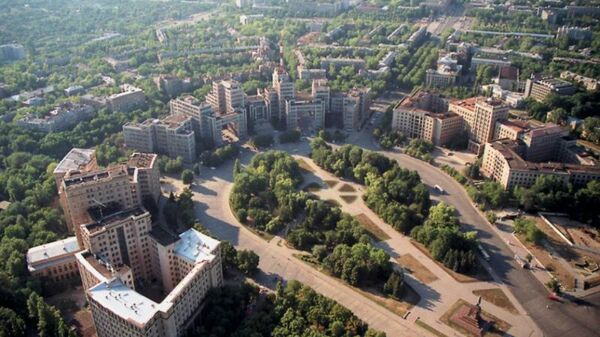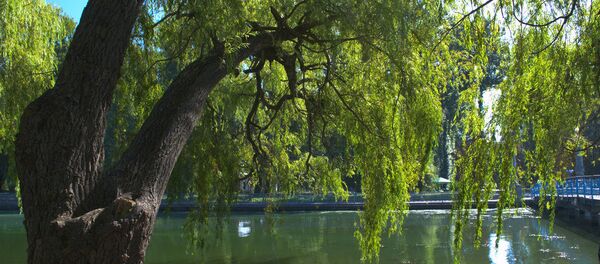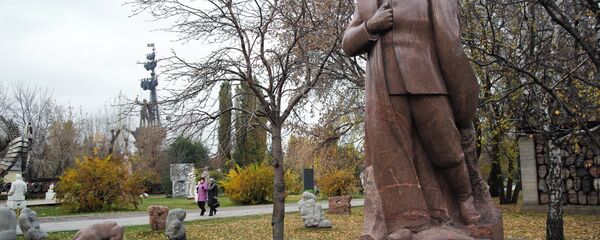Put another way, the Frunzenskiy district will now officially be named after Timur Frunze, WWII pilot and posthumous Hero of the Soviet Union, rather than the famous Soviet revolutionary Mikhail Frunze, his father.
The Dzerzhinskiy district, meanwhile, will be named in honor of Vladislav Dzerzhinskiy, the manager of the Kharkov district hospital and the Department of Neurology and Psychiatry at the University of Kharkov, rather than his brother, Felix, the former head of the Soviet secret police.
Finally, the Oktyabrsky district will now officially be named in honor of the month in which Ukraine was liberated from the Nazis –October 28, 1944, instead of after the October Revolution of 1917. The Kharkov City Council took pains to emphasize, tongue in cheek, that it was former Orange Revolutionary president Viktor Yushchenko who signed the decree 'On the Day of Ukraine's Liberation from the Nazi Invaders' into law in 2009.
Furthermore, according to the commission, the Comintern district, despite its name being short for the Communist International, is also not subject to renaming under the de-communization law, since it was actually named after the Comintern machine-building plant, which has itself already been renamed the Mayshev Factory, in honor of Soviet industrialist Vyacheslav Malyshev.
For instance, officials in Krasnyi Lyman, a town in Kiev-controlled northern Donetsk, proposed 'renaming' their town, which translates as 'Red Estuary', by reinterpreting 'Krasnyi' (Red) to mean beautiful, nice, wonderful, and not the color of Soviet power.
A similar decision was made last month in the town of Volnovakha, also in the Kiev-controlled portion of the Donetsk region. Seeking to preserve a monument to Red Army Civil War commander Vasily Chapaev, officials simply renamed it the Kozak Monument.
Украинский КОЗАК…А был Чапаев…(@MaksChepay) pic.twitter.com/q34fodsE9W
— ЗЛОЙ КОЛОРАД (@abatsia) 8 ноября 2015
"The Ukrainian Kozak. Formerly Chapaev…"
Earlier this year, Ukrainian authorities vowed to rename around 1,000 place names by the end of November, among them Dnepropetrovsk, Ukraine's third largest city, and the Dnipropetrovsk region. Last week, Dnipropetrovsk mayoral candidate Alexandr Vilkul suggested that the city could keep its current name, if it was interpreted to be named after St. Peter, instead of Grigory Petrovksky, the prominent Ukrainian communist revolutionary and political leader.
Ahead of the passage of the laws on decommunization earlier this year, experts warned that the titanic effort of renaming place names would be a financial, political and bureaucratic nightmare. With literally thousands of city, town, village and street names slated for renaming, and tens of thousands of communist symbols earmarked for removal from buildings, monuments, gates and facades, the campaign was projected to cost the country at least 5 billion hryvnia (equivalent to about $236 million US). Moreover, once the cities, regions and streets are renamed, at least 2 million people, businesses and public organizations will have to line up in government offices to renew their documents. And that's not even mentioning the historical significance of having the country's entire 20th century history mutilated and defaced.




